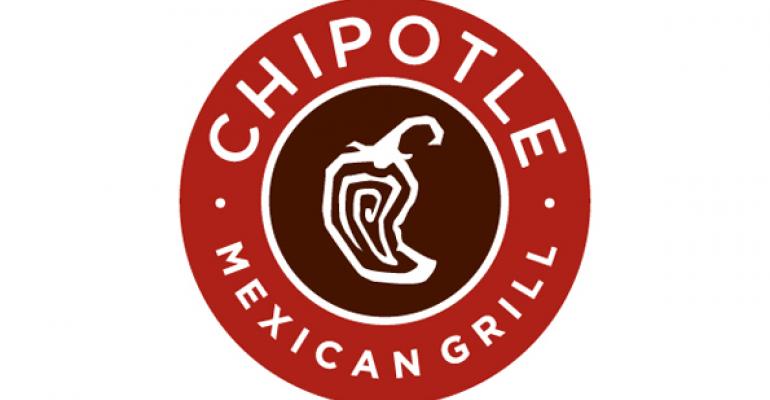 This report is part of the Reporter's Notebook blog.
This report is part of the Reporter's Notebook blog.
Chipotle Mexican Grill Inc. revealed more about its efforts to improve food safety on Wednesday as the chain works to bring back guests scared off by a months of foodborne illness outbreaks last year.
The Denver-based chain confirmed the hiring of two leading food-safety experts as consultants, reported by Reuters on Wednesday, though the two were hired months ago.
The report also spotlighted some supplier shifts, though it’s unclear whether the moves are a result of the chain’s stricter food-safety protocols.
Chris Arnold, Chipotle’s communications director, confirmed that the chain last year brought in as consultants Dr. David Acheson, a former U.S. Department of Agriculture and Food and Drug Administration official, as well as David Theno, a former Jack in the Box executive who is widely respected for his work helping that chain recover from an E. coli outbreak in 1993 that sickened hundreds of consumers and killed four children.
Acheson, a physician and specialist in foodborne pathogens, is founder and CEO of The Acheson Group after spending years at the federal agencies, including serving as the FDA’s associate commissioner for foods, which helped develop the 2007 Food Protection Plan.
Theno was Jack in the Box’s senior vice president and food safety officer from March 1993 to January 2009 and is widely considered a go-to advisor on food safety within the restaurant industry.
Arnold said Acheson and Theno were working with Chipotle before James Marsden was hired as executive director of food safety in March. The chain has also continued to work with IEH Laboratories and Consulting Group, which was brought in when E. coli was first reported in the Pacific Northwest last fall.
Arnold did not elaborate on what Acheson and Theno are doing specifically for the chain. Last year Chipotle outlined aggressive food-safety practices that include high-resolution testing of ingredients for pathogens, greater supplier accountability and food-handling procedures to bring the threat of foodborne illness to near zero.
Part of that effort is holding suppliers to a higher food-safety standard.
The Reuters report noted that Chipotle has cut ties with some suppliers, citing Kenter Canyon Farms as an example.
Is Chipotle moving away from smaller suppliers?
Some critics contend Chipotle will be forced to move away from smaller farms in favor of larger suppliers with better food-safety controls, despite the fast-casual chain’s longtime attempt to position itself as the small-farm-championing alternative to the Big Agriculture conglomerates supplying most fast-food chains.
Chipotle last year warned that new food-safety standards for suppliers, including the testing of ingredients for certain pathogens, might be a challenge for small- and medium-sized farms.
To help support those smaller growers and keep them within the Chipotle supplier family, chain officials earlier this year launched a $10 million Local Grower Support Initiative.
Kenter Canyon provided organic oregano to Chipotle through a third-party distributor, said Mark Lopez, Kenter Canyon’s sales manager, food safety director and organics compliance officer.
Chipotle cut ties with the third-party distributor last December in the midst of the E. coli crisis, a move that likely impacted other suppliers, Lopez told NRN, though he declined to identify the middleman.
It was not a reflection of any specific practices by the farm and Chipotle had no direct contact or communication with Kenter Canyon, said Lopez, though Chipotle officials had visited the farm in the past.
“I think it was just a broad brush, just to be on the safe side,” he said. “Not knowing where the E. coli came from, they broke off ties with this level of grower.”
Chipotle’s Arnold did not respond to questions about why the distributor was cut.
Kenter Canyon describes itself as a family farm in California’s Ventura County that is committed to sustainable farming practices, raising lettuce, herbs and specialty crops. About 95 percent of the produce they grow is organic.
But it isn’t exactly a small farm.
The 300-acre farm is a national supplier of organic oregano, and one of its biggest clients is Whole Foods Markets, for which the farm provides organic oregano to stores across the Southern Pacific region.
Lopez declined to characterize the farm’s sales specifically, but he said gross annual sales are more than $250,000, which is the defining mark for a small farm under the USDA definition.
It's not a giant farm either, he said. Kenter Canyon trucks its produce to Los Angeles where it gets distributed. "We don't ship out of state," he said. "But we're no mom and pop."
The size of a farm, however, does not necessarily determine how safe the food it produces might be, said Lopez. “No matter the size, there has to be transparency.”
Contact Lisa Jennings at [email protected]
Follow her on Twitter @livetodineout





